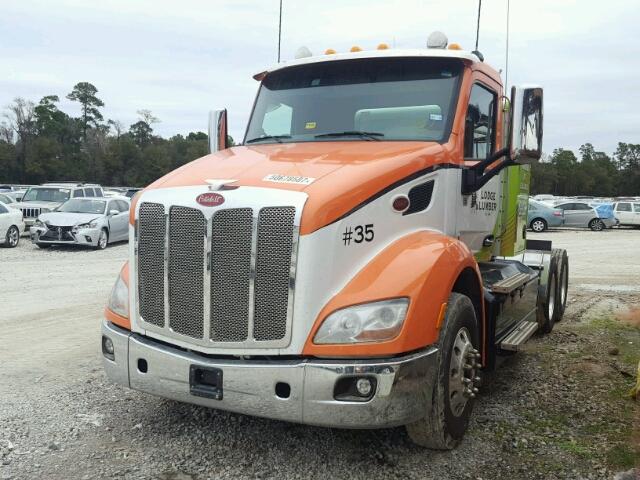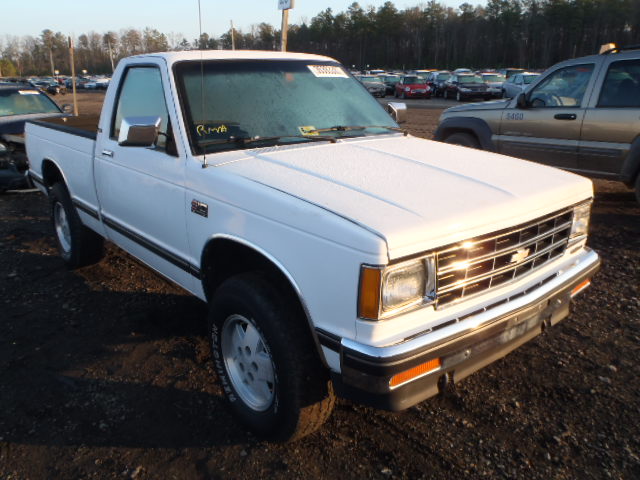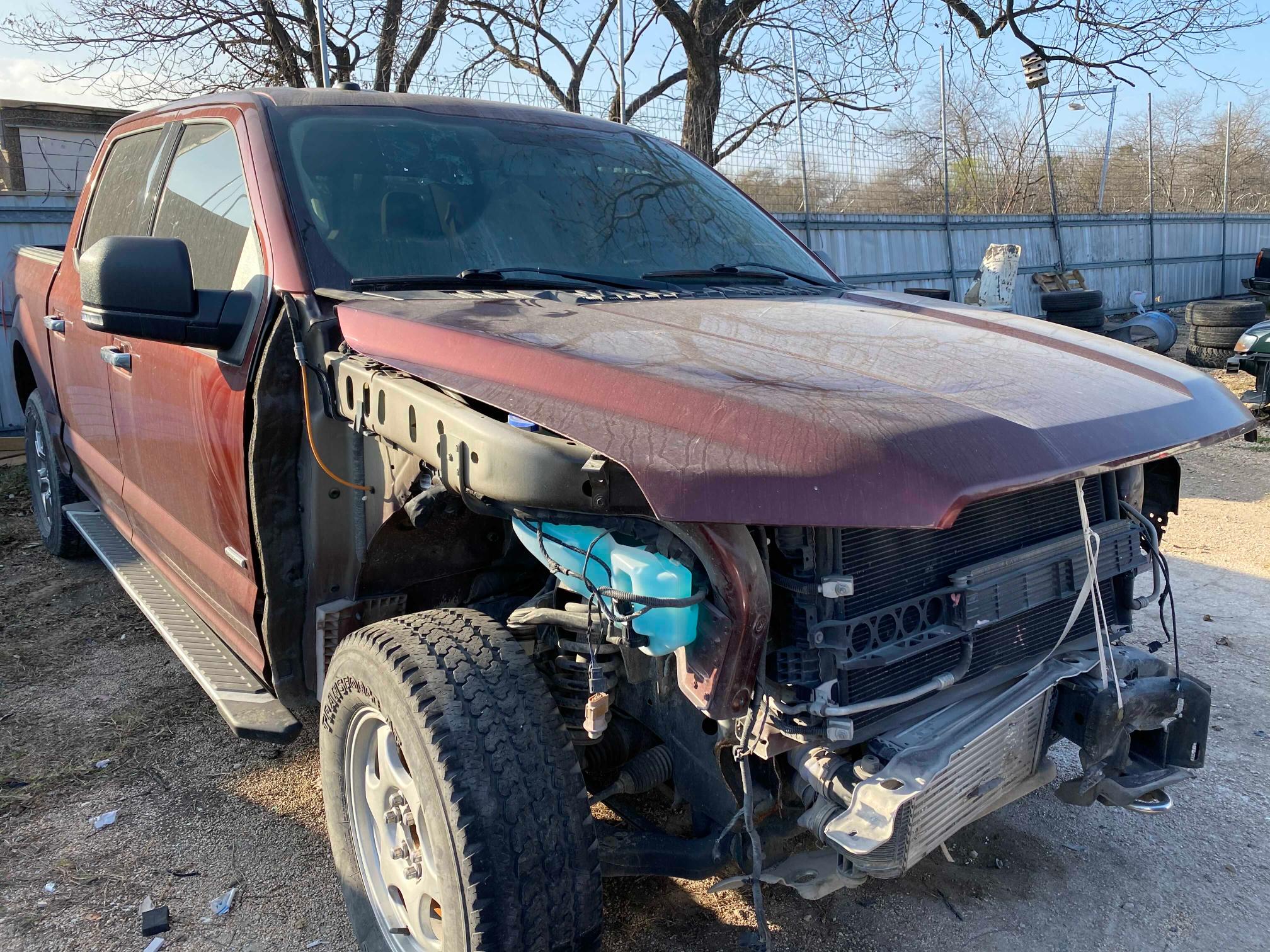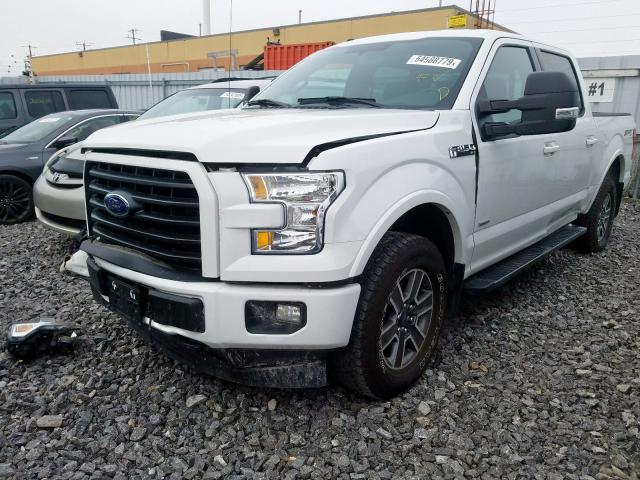Copart Trucks For Sale: Your Ultimate Guide to Unlocking Value pickup.truckstrend.com
The hum of a powerful engine, the promise of heavy hauling, or the simple utility of a dependable workhorse – trucks hold a unique allure. Whether you’re a small business owner needing a reliable fleet vehicle, a mechanic seeking a project, or an individual looking for a robust personal vehicle at a fraction of the cost, the world of Copart trucks for sale offers an intriguing proposition. Copart, a global leader in online vehicle auctions, provides a vast marketplace where thousands of trucks of all types and conditions are auctioned off daily. This guide delves deep into the nuances of acquiring a truck through Copart, equipping you with the knowledge to navigate this dynamic environment and make informed, valuable purchases.
What is Copart? A Brief Overview
Copart Trucks For Sale: Your Ultimate Guide to Unlocking Value
Before diving into trucks specifically, it’s essential to understand Copart’s core business. Copart, Inc. is a leading online vehicle auction company that sells salvage and clean title vehicles to a global network of buyers. Their inventory primarily comes from insurance companies (salvage vehicles due to collision, flood, hail, theft recovery), banks (repossessed vehicles), dealerships (trade-ins), and fleet operators. With a presence across multiple continents and thousands of vehicles added daily, Copart has established itself as a massive, transparent (though complex) platform for buying used, damaged, and specialty vehicles, including a significant focus on trucks.
Why Buy Trucks from Copart? Benefits Explored
The decision to purchase a truck from Copart isn’t for the faint of heart, but it offers several compelling advantages for those willing to do their homework:
- Significant Cost Savings: This is often the primary driver. Trucks on Copart, especially those with salvage titles or needing repairs, can be acquired at prices substantially lower than their retail market value. This makes them attractive for individuals with repair skills or businesses looking to expand their fleet economically.
- Vast and Diverse Inventory: From light-duty pickups (Ford F-150, Chevrolet Silverado, Ram 1500) to medium-duty box trucks, heavy-duty semi-trucks, dump trucks, and even specialized vocational vehicles, Copart’s inventory is incredibly diverse. You can find virtually any make, model, and configuration imaginable, often with various damage types or conditions.
- Opportunity for Profit: For experienced mechanics, body shops, or vehicle resellers, buying a damaged truck at a low price, repairing it, and then reselling it for a profit is a viable business model. Parts harvesting from non-repairable trucks is another common practice.
- Transparency (with caveats): Copart provides extensive information for each listing, including multiple photos, a detailed condition report, damage descriptions, odometer readings, and often a VIN. This allows buyers to conduct thorough remote research, though physical inspection is always recommended.
- Unique Finds: Looking for an older, rare model for a restoration project, or a specific commercial vehicle that’s hard to source elsewhere? Copart’s vast, ever-changing inventory often holds these unique gems.

Types of Trucks Available on Copart
The range of trucks on Copart is truly extensive, catering to various needs and budgets. Understanding these categories can help narrow your search:
- Light-Duty Trucks: This category primarily includes popular pickup trucks like the Ford F-Series, Chevrolet Silverado, Ram, Toyota Tacoma, and Nissan Titan. You’ll find crew cabs, extended cabs, single cabs, and various bed lengths, often with different trim levels and engine options.
- Medium-Duty Trucks: These are workhorses typically used for commercial purposes. Examples include box trucks (for deliveries), utility trucks (for service providers), cutaway vans, and smaller flatbed trucks.
- Heavy-Duty Trucks: This segment encompasses the largest and most powerful vehicles, such as semi-trucks (tractors from Freightliner, Peterbilt, Kenworth), dump trucks, concrete mixers, refuse trucks, and large flatbed trucks. These are crucial for logistics, construction, and heavy hauling industries.
- Commercial Fleet Vehicles: Often sold in bulk or individually from large corporations, these can include a variety of light, medium, and heavy-duty vehicles that have reached the end of their service life for the original owner.
- Specialty Vehicles: Occasionally, you might find unique trucks like fire trucks, ambulances, tow trucks, or custom-built vocational vehicles.


Understanding Copart’s Vehicle Information and "Buyer Beware"
Navigating Copart requires a keen eye and a healthy dose of skepticism. The information provided is extensive, but understanding its implications is critical:
- Vehicle Condition/Type:
- Salvage: Most common. These vehicles have been declared a total loss by an insurance company due to damage (collision, flood, fire, hail, theft). They require significant repairs and a state inspection to be roadworthy again, often resulting in a "Rebuilt" or "Salvage" title.
- Clean These vehicles have not been declared a total loss. They might be repossessions, fleet sales, or trade-ins, and generally require fewer repairs to be operational.
- Run & Drive: The engine starts, and the vehicle can be put into gear and driven forward under its own power. This does not guarantee roadworthiness or certify the condition of other components.
- Starts: The engine starts and idles, but the vehicle may not be drivable.
- Non-Repairable/Parts Only: These vehicles are typically too damaged to be legally repaired and are sold for parts or scrap.
- Damage Types: Copart lists primary and secondary damage. Common types include front end, rear end, side, all-over, mechanical, flood, fire, hail, and vandalism. Always assume there might be hidden damage beyond what’s visible.
- Photos: Review every photo provided. Zoom in, look for inconsistencies, fluid leaks, bent frames, or deployment of airbags.
- Inspection Reports (Condition Reports): These are brief assessments by Copart staff. While helpful, they are not comprehensive mechanical inspections and should not be solely relied upon.
- Mileage and VIN Check: Always verify the odometer reading. Run a third-party VIN check (e.g., CarFax, AutoCheck) to see the vehicle’s history, previous accidents, title brands, and service records. This is perhaps the most crucial step.
- Buyer Fees: This is where many first-time buyers get surprised. Copart charges numerous fees on top of the winning bid, including:
- Bid Fee/Transaction Fee: Based on the winning bid amount.
- Internet Bid Fee: For bidding online.
- Gate Fee: For picking up the vehicle.
- Storage Fees: If the vehicle isn’t picked up within the allotted time.
- Broker Fees: If using a third-party broker.
- Taxes: Applicable sales taxes.
- Always calculate all fees before setting your maximum bid.
How to Buy a Truck on Copart: A Step-by-Step Guide
Purchasing a truck from Copart involves several distinct stages:
- Registration: Become a Copart member. You’ll need to provide identification and sometimes a deposit. Understand the different membership levels (Basic, Premier) and their benefits.
- Finding Trucks: Utilize Copart’s powerful search filters. You can search by make, model, year, location, damage type, title type, vehicle type (truck, heavy duty truck), and even specific keywords. Save your searches for convenience.
- Researching a Vehicle: This is the most critical step.
- Scrutinize all photos.
- Read the condition report carefully.
- Check the VIN for past history using external services.
- Estimate repair costs based on the visible damage and potential hidden issues. Get quotes from mechanics if unsure.
- Factor in all Copart fees and potential shipping costs.
- Pre-Bid Inspection (Highly Recommended): If feasible, physically inspect the truck at the Copart yard. You can do this yourself or hire a third-party inspection service specializing in auction vehicles. This can reveal hidden damage not visible in photos.
- Bidding: Copart offers two main bidding methods:
- Preliminary Bidding: Place your maximum bid before the live auction. Copart’s system will automatically bid on your behalf up to your maximum.
- Live Bidding (VB3 Platform): Participate in real-time online auctions. This requires quick decision-making and a strong internet connection.
- Winning the Auction & Payment: If you’re the highest bidder and meet the seller’s reserve price (if any), you’ve won! You’ll receive an invoice. Payment deadlines are strict (typically 2-3 business days). Failure to pay results in significant late fees and potential loss of the vehicle.
- Vehicle Pickup/Shipping: Once paid, arrange for pickup. You can pick it up yourself (ensure you have appropriate towing/transport equipment for non-running vehicles) or arrange for a third-party transporter. Be mindful of storage fees if you delay pickup.
Tips for Successful Copart Truck Purchases
To maximize your chances of a successful and profitable purchase, keep these tips in mind:
- Set a Strict Budget: And stick to it! Include the winning bid, all Copart fees, potential broker fees, transportation costs, and a realistic estimate for repairs. Add a contingency fund for unexpected issues.
- Do Your Homework Religiously: Research is paramount. Never bid blindly. The more you know about the specific truck and its potential issues, the better.
- Understand Damage Categories: Familiarize yourself with common truck damage and what repairs entail (e.g., frame damage is often complex and expensive).
- Get Repair Estimates Before Bidding: If you plan to repair, get quotes from trusted mechanics or body shops based on the damage descriptions and photos.
- Consider a Broker: If you don’t have a dealer’s license (required for certain vehicles/states) or are new to auctions, a licensed Copart broker can facilitate the purchase, handle paperwork, and offer advice.
- Factor in Transportation Costs: Especially for heavy-duty trucks, shipping can be significant. Get quotes early.
- Read All Terms and Conditions: Ignorance of rules and fees is not an excuse.
- Patience is a Virtue: Don’t feel pressured to buy the first truck you see. There are thousands of options, and a better deal might be just around the corner.
Potential Challenges and Solutions
While Copart offers great opportunities, it comes with inherent risks:
- Hidden Damage: The biggest challenge. A vehicle might look repairable but have unseen mechanical or structural damage.
- Solution: Always aim for a physical inspection. If not possible, factor in a significant contingency fund for repairs. Use VIN checks to uncover previous incidents.
- Unexpected Fees: The total cost can quickly escalate beyond the bid price.
- Solution: Create a detailed spreadsheet of all potential fees (bid, internet, gate, storage, broker, taxes) and add them to your maximum bid before the auction.
- Logistics and Pickup: Transporting a large, potentially non-running truck can be complex and expensive.
- Solution: Plan transportation before bidding. Get quotes from reputable auto transport companies. Ensure you have the right equipment if picking up yourself.
- Title Issues: Some salvage titles can be difficult or impossible to register in certain states.
- Solution: Research your state’s specific title branding laws for salvage vehicles before bidding.
- Competition: Popular trucks, especially those with minimal damage, can attract fierce bidding wars.
- Solution: Set a strict maximum bid and stick to it. Don’t get caught in the "auction fever."
- No Returns: All sales are final. There are no refunds or exchanges, even if the vehicle is not as described (unless major discrepancies are proven).
- Solution: Due diligence, due diligence, due diligence!
Copart Trucks For Sale: Example Price Ranges (Estimates)
It’s crucial to understand that prices on Copart vary wildly based on make, model, year, location, damage type, title status, and market demand. The table below provides illustrative estimated ranges to give you a general idea, but these are not guaranteed prices and can fluctuate significantly.
| Truck Type / Condition Category | Example Makes/Models | Estimated Bid Price Range (USD) | Additional Considerations |
|---|---|---|---|
| Light-Duty Pickups | |||
| Salvage/Heavily Damaged | Ford F-150, Chevy Silverado, Ram 1500 | $1,500 – $8,000 | High repair costs, often requires frame work/airbags. |
| Moderate Damage/Starts | Ford F-150, Chevy Silverado, Ram 1500 | $5,000 – $15,000 | Drivable with repairs, good for mechanics. |
| Clean Title/Minor Damage/Run & Drive | Ford F-150, Chevy Silverado, Ram 1500 | $10,000 – $30,000+ | Fleet sales, repossessions, trade-ins. |
| Medium-Duty Trucks | |||
| Salvage/Heavily Damaged | Ford F-550, Isuzu NPR, Freightliner M2 (Box Truck) | $2,000 – $10,000 | Often commercial fleet vehicles, high mileage. |
| Moderate Damage/Starts | Ford F-550, Isuzu NPR, Freightliner M2 (Box Truck) | $8,000 – $25,000 | Potential for specialized equipment repair. |
| Clean Title/Minor Damage/Run & Drive | Ford F-550, Isuzu NPR, Freightliner M2 (Box Truck) | $15,000 – $50,000+ | Ready for work, but often older models. |
| Heavy-Duty Trucks | |||
| Salvage/Heavily Damaged | Freightliner Cascadia, Peterbilt 379, Kenworth T680 (Semi-Truck) | $3,000 – $15,000 | Extensive repairs, parts can be very expensive. |
| Moderate Damage/Starts | Freightliner Cascadia, Peterbilt 379, Kenworth T680 (Semi-Truck) | $10,000 – $40,000 | Often mechanical issues, high mileage. |
| Clean Title/Minor Damage/Run & Drive | Freightliner Cascadia, Peterbilt 379, Kenworth T680 (Semi-Truck) | $20,000 – $80,000+ | Good for owner-operators, but still significant investment. |
| Specialty/Vocational Trucks | |||
| Any Condition (e.g., Dump, Fire, Tow) | Mack Granite (Dump Truck), Pierce (Fire Truck), Ford F-650 (Tow Truck) | $5,000 – $100,000+ | Highly variable based on specialized equipment and condition. |
Important Disclaimer: The prices above are estimates and can change daily. They do not include Copart fees, taxes, transportation costs, or repair expenses, which can add significant amounts to the final cost. Always do your own research and budgeting.
Frequently Asked Questions (FAQ) about Copart Trucks For Sale
Q1: Do I need a dealer license to buy a truck from Copart?
A1: Not always. Many vehicles (especially those with clean titles or specific categories) are available to the public. However, some vehicles, particularly those with salvage titles, may require a dealer’s license depending on the state. If you don’t have one, you can use a licensed Copart broker to bid and purchase on your behalf.
Q2: Can I inspect a truck before buying it on Copart?
A2: Yes, and it’s highly recommended. Most Copart yards allow members to inspect vehicles during business hours prior to the auction. You can also hire a third-party inspection service to do it for you if you’re unable to go in person.
Q3: What are the typical fees associated with buying a truck on Copart?
A3: Fees include a bid fee (based on bid amount), internet bid fee, gate fee, and potentially storage fees if not picked up promptly. Sales tax is also applied. If you use a broker, they will charge their own service fee. Always check the specific fees for each listing.
Q4: Are all sales final on Copart?
A4: Yes, almost all sales on Copart are final. Vehicles are sold "as is, where is," with no warranties or guarantees. This emphasizes the importance of thorough research and inspection before bidding.
Q5: How do I get the truck after I win the auction?
A5: You have two main options: you can pick it up yourself from the Copart yard (ensure you have appropriate towing/transport equipment for non-running vehicles), or you can arrange for a third-party auto transport company to pick up and deliver the truck for you.
Q6: What does "Run & Drive" mean for a truck on Copart?
A6: "Run & Drive" means that at the time of processing, the engine started, the vehicle could be put into gear, and it moved forward under its own power. It does not imply roadworthiness, certify the condition of the drivetrain, brakes, steering, or any other component.
Q7: What does a "Salvage Title" mean for a truck?
A7: A "Salvage Title" indicates that an insurance company has declared the vehicle a total loss due to damage (e.g., collision, flood, fire) where the repair cost exceeds a certain percentage of its value. These trucks cannot be legally driven on public roads until they are repaired and pass a state-specific inspection, after which they may be issued a "Rebuilt" or "Reconstructed" title.
Conclusion
Copart trucks for sale represent a compelling avenue for securing vehicles at competitive prices, offering a vast inventory that caters to a diverse range of needs. From light-duty pickups for personal use to heavy-duty commercial workhorses, the potential for significant savings is undeniable. However, this opportunity comes with the imperative of meticulous due diligence. Understanding vehicle conditions, scrutinizing reports, factoring in all associated costs, and ideally, conducting pre-bid inspections are not merely suggestions but necessities for success. For the informed and cautious buyer, Copart can be a treasure trove, transforming what might seem like a risk into a rewarding acquisition. With the right approach, your next valuable truck could be just a winning bid away.



